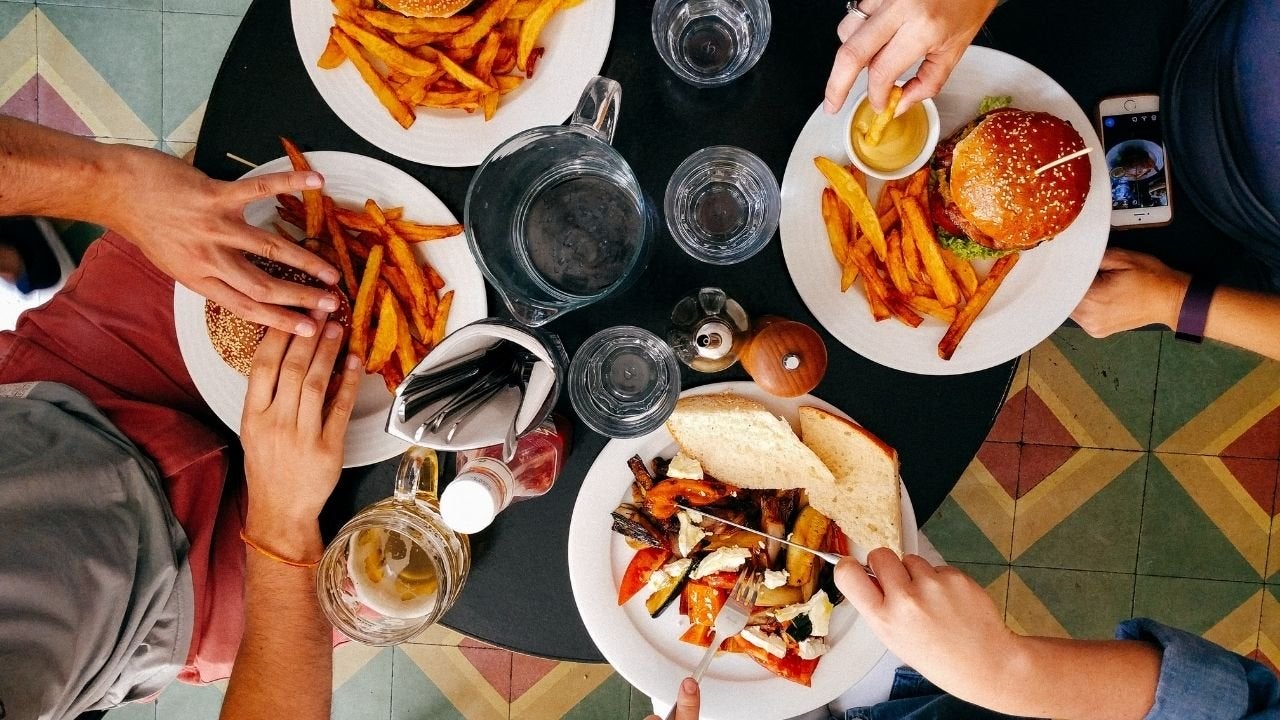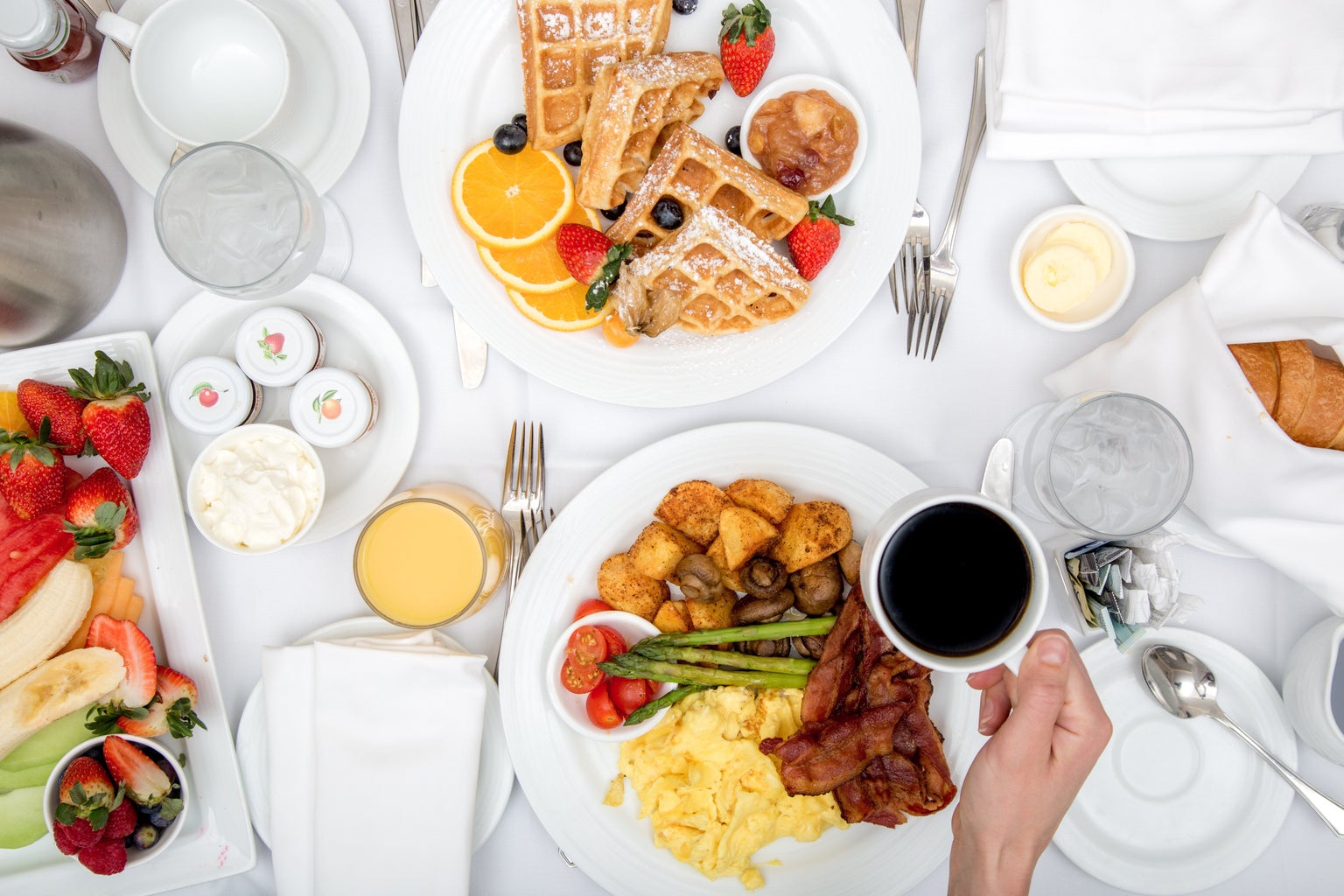It’s time that we start seriously nourishing our bodies, and in 2024 we are doing it with zero guilt. We are listening to hunger signals, we’re enjoying all the carbohydrates our brains need to function, and we’re loving ourselves for it. These are six ways to improve your relationship with food in the new year, written by a foodie, future dietitian, and mental health junkie.
1. Stay informed!
When you understand the physiological needs of your body, it is 100 times easier to stop being so harsh on yourself. Our bodies have needs, needs that can be sweet, salty, or spicy! Carbohydrates are essential to the entire body, most notably the brain, for function, and are the macronutrient we should eat the most of. Learning basic nutrition facts like this is a great way to alleviate guilt or stress about food choices. Eat that pasta when you’re out to dinner with your friends, and order dessert too; your brain will appreciate it! And what if I told you that adding more food (fats, proteins, and fiber) would make your carbohydrates even better for you?
2. Understand “balance”
We all know the term “balanced diet,” but what does that really mean? When you understand what a “balanced diet” looks like, you also understand that everything can fit into it. There is no balance without the delicious foods you love, and the key to balanced eating is addition, not subtraction. I cannot stress this enough, you do not need to eliminate less nutrient-dense foods to be a healthy eater, instead, you simply add nutrient density (fruits, vegetables, protein) to your diet in other places! All foods fit.
3. Leave behind terms like “good foods” and “bad foods”
The connotation that foods are “good” or “bad” based on nutrient density is just one of many ways that diet culture is harmful. There is no reason to deem less nutrient-dense food as “bad,” in fact, it is simply a guilt-inducing tactic. Food choices are based on craving, satiety, availability, and several other factors. When we understand these factors and can perceive foods with more neutrality, we are able to develop a more positive feeling about our food choices. I love dietitian Lindsay Pleskot’s blog post, “Good Food vs Bad Food: Why We Need to Stop with Food Morality.”
4. Notice what makes you feel your best physically
I sometimes think about the times I have skipped breakfast or had nothing but a coffee in the morning. We’ve all been there, especially when there are early morning lectures to get to. Then, I compare that to a morning where I ate a balanced, delicious breakfast to start my day, maybe with a coffee as well. Two very, very different ways to start the day, and the second option made me feel significantly better than the first. Our bodies function their best when they have been provided with energy. In fact, breakfast sets up our bodies to feel their very best for the entire day by creating a more stable blood sugar. Again, the importance of being informed! Listen to those hunger signals in the morning — it is going to make you feel tremendously better.
5. Listen to the professionals and don’t be afraid to ask for help
There is no shame in needing extra support to achieve the healthy outlook on food that you deserve. Registered Dietitians are healthcare clinicians who specialize in human nutrition and food science. There is an abundance of online resources and blogs from RDs to support people on their journey to healthier physical and mental well-being. Dietitian Rachel Hartley’s blog “The Joys of Eating” is a fantastic place to start! Check out her article “What is Intuitive Eating? Beginners Guide to the Intuitive Eating Principles.”
6. Learn (and actively practice) unconditional self-love
Undeniably the most important step we’re all going to take. All bodies are deserving of love, respect, and proper nourishment, end of discussion. Our world is so harsh about criticizing and itemizing women’s bodies, and it’s a harshness that doesn’t roll off the back so easily. Be gentle with yourself and remind yourself that the best way to combat this is by lifting yourself up. Beauty comes from within! Treating yourself with love, patience, and kindness will make you an even more beautiful person.
We all owe it to ourselves to take care of our bodies, with no exceptions. While this looks different for everyone, we all need fuel, movement, and self-love. Take the time to know your body and its needs, and you will reap the benefits!
If you or someone you know has an eating disorder and needs help, call the National Eating Disorders Association helpline at 1-800-931-2237, text 741741, or chat online with a Helpline volunteer here.




